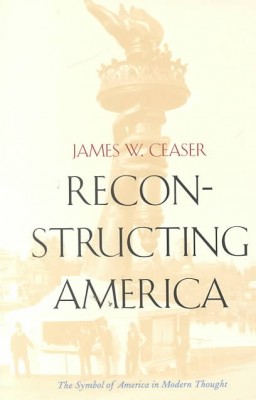| Reconstructing America: The Symbol of America in Modern Thought Revised Edition Contributor(s): Ceaser, James W. (Author) |
|
 |
ISBN: 0300084536 ISBN-13: 9780300084535 Publisher: Yale University Press OUR PRICE: $41.58 Product Type: Paperback - Other Formats Published: August 1997 Annotation: With wit and passion James Ceaser traces the origins of negative impressions European scholars perpetuated, beginning in the 18th century. Ceaser contends that American politics, culture, and institutions have assumed this negative imagery too long--and that for our own good we need to upgrade our standards and reassert America's original ideals. |
| Additional Information |
| BISAC Categories: - History | United States - General - Political Science | History & Theory - General - Philosophy | History & Surveys - Modern |
| Dewey: 973 |
| Physical Information: 0.7" H x 5.75" W x 9" (0.80 lbs) 304 pages |
| Descriptions, Reviews, Etc. |
| Publisher Description: For too many people, America has become the primary symbol of all that is grotesque, deadening, and oppressive--or, as Heidegger once put it, the emerging monstrousness of modern times. This image of a degenerate America, constructed by European intellectuals, has been gradually accepted within the United States, for America is now under siege by its own philosophers, literary critics, and postmodern thinkers. It is time, says James Ceaser in this provocative book, to take America back, to reaffirm confidence in our principles, and to remind ourselves that the real Americas opposed to the symbolic one has forged a system of liberal democratic government that has shaped the destiny of the modern world. With wit and passion, Ceaser traces the origins of the negative images of America, beginning with French scientists in the middle of the eighteenth century who viewed the country as a land of racial and physical degeneracy, and continuing with German thinkers from Hegel to Nietzsche, Spengler, and Heidegger, who viewed America as culturally inferior and a technological wasteland. Ceaser puts these critics of America in a dialogue with the country's defenders--among them Alexander Hamilton, Alexis de Tocqueville, and Leo Strauss. By revealing the sources of the hostility to America, Ceaser undermines the position of its present attackers. He contends that only if we reassert political science rather than cultural and literary criticism as the proper intellectual discipline to direct politics will we free the real America from the symbolic America and vindicate its name. |